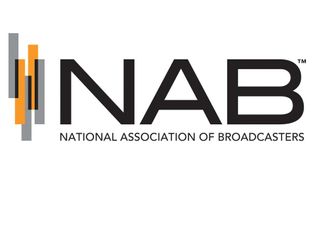NAB Withdraws Audio Description Delay Request
Says it will support case-by-case extensions instead

The National Association of Broadcasters has withdrawn its request for a blanket delay of the FCC's ramping-up of audio description rules.
Under those rules, broadcasters and cable operators must air a minimum number of video-described hours of programming per week. Those are the audio descriptions--for the blind or visually impaired--of key visual elements in a program (i.e., "he smiles ruefully," or "scene changes to New York street").
Related: NCTA Tweaks Request for Video Description Relief
The FCC voted in April to propose requiring 40 more markets (DMAs 61-100) to provide audio descriptions of video programming starting Jan. 2, 2020, 10 markets per year over four years, starting with markets 61-70. But it also wanted to know if the current pandemic changes any part of the equation.
Back in June, NAB had said yes. While it told the FCC that most broadcasters should be able to hit the deadline, that may not be the case for some, particularly independent stations, particularly given the economic hit they have taken from the COVID-19 pandemic. It asked the FCC to give stations in those initial 10 markets more time before they are made subject to the FCC's rules, which were mandated in the Twenty-First Century Communications and Video Accessibility Act of 2010.
But in a letter to the FCC this week, NAB General Counsel Rick Kaplan said that after FCC staffers said they were concerned that a blanket delay could be over inclusive and stall the availability of audio-described programming NAB took that into account and decided to "respectfully withdraw" its request for an industrywide delay.
Instead it said it would support stations seeking waivers of the deadline on a case-by-case basis, which the FCC pointed out should provide sufficient options for stations that may need an extension due to the economic burden.
Broadcasting & Cable Newsletter
The smarter way to stay on top of broadcasting and cable industry. Sign up below
"NAB has identified some television stations that could benefit from the requested delay, for example, because they will need to procure additional equipment to implement audio description or could use more time to recover from the economic harm caused by the COVID-19 pandemic before incurring such an expense. Nevertheless, the broadcasting industry takes seriously its’ commitment to improving the ability of Americans who are blind or visually impaired to enjoy broadcast programming," said Kaplan.
Contributing editor John Eggerton has been an editor and/or writer on media regulation, legislation and policy for over four decades, including covering the FCC, FTC, Congress, the major media trade associations, and the federal courts. In addition to Multichannel News and Broadcasting + Cable, his work has appeared in Radio World, TV Technology, TV Fax, This Week in Consumer Electronics, Variety and the Encyclopedia Britannica.

